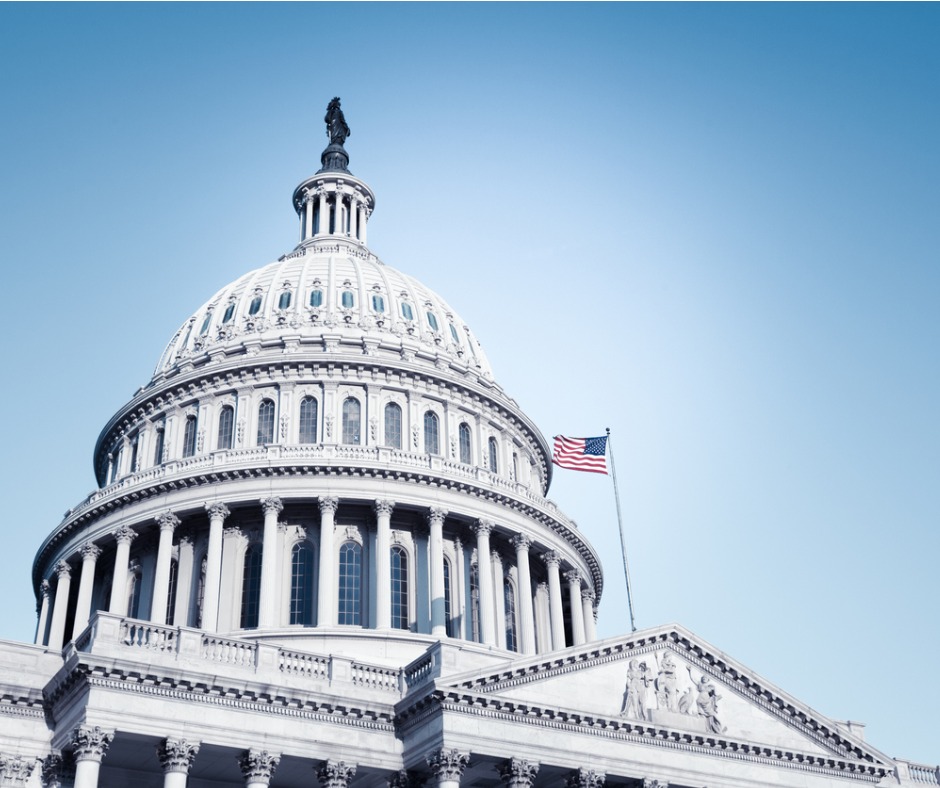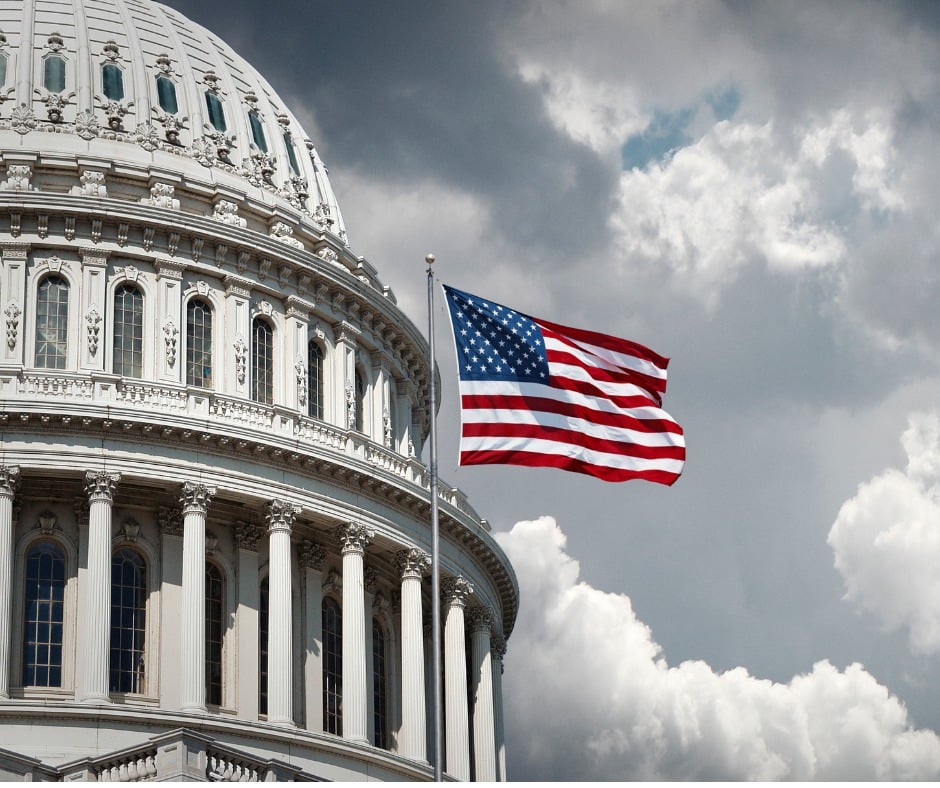The Clouds Have Cleared: Auto Repairers Can Look Ahead now that there is Electoral Clarity
 After months of waiting and making predictions, the automotive repair community and the rest of the world finally knows what the federal government will look like. Republicans have secured a trifecta. Former President Donald Trump will once again assume residency in the White House. Republicans will control the U.S. Senate with a fifty-three to forty-seven seat majority. The U.S. House of Representatives will retain its narrow Republican majority. While this clarity might bring a sense of relief, it also creates more reasons for speculation. Repairers must now anticipate the opportunities and challenges this political reality presents to their businesses.
After months of waiting and making predictions, the automotive repair community and the rest of the world finally knows what the federal government will look like. Republicans have secured a trifecta. Former President Donald Trump will once again assume residency in the White House. Republicans will control the U.S. Senate with a fifty-three to forty-seven seat majority. The U.S. House of Representatives will retain its narrow Republican majority. While this clarity might bring a sense of relief, it also creates more reasons for speculation. Repairers must now anticipate the opportunities and challenges this political reality presents to their businesses.
Finance and Succession Planning
Although interest rates started to go down prior to the election, if there is opportunity, President Trump is likely to appoint a Federal Reserve Chair committed to keeping interest rates low. This trend should benefit single-shop repairers, multi-shop repairers, and investors alike. It will become easier for shops to open new locations. Shop owners making succession plans can also expect a larger market of investors in the mergers and acquisitions space willing to purchase their repair business.
One factor that could work against a robust M&A environment is the Federal Trade Commission (FTC) nominees, who wield significant power to block deals. Traditionally, Republicans favored policies that limit interference in business transactions and operations. That preference should largely remain intact, but the increase of populists in the party might make the M&A environment less favorable than expected. Vice President-Elect J.D. Vance – seen as a key figure in the Republican populist wing – stated earlier this year that he thinks President Biden’s FTC Chair Lina Khan is, “one of the few people in the Biden administration that I think is doing a pretty good job.” A few months later, he said, “she’s justifiably worried about some of the big tech companies and the concentration of power.” Similarly, U.S. Congressman Matt Gaetz (R-FL), nominee for Attorney General, made it clear that he hopes, “whoever is the next FTC chair would continue many of the cases that Chair Khan has brought against predatory businesses.” Senator Josh Hawley (R-MO) has echoed that praise.
Regardless, any changes in the Republican party’s approach to antitrust policy will likely be tempered by more established leaders – such as House Judiciary Committee Chair Jim Jordan (R-OH) – who has called Khan’s tenure leading the FTC “a disaster.” Overall, House and Senate Republicans will likely push the FTC and other agencies to pursue a friendlier and more hands-off approach to the business community. Republicans in Congress have already reignited a push to delay implementing parts of the Corporate Transparency Act (CTA) slated to go into effect on January 1. It will require many small businesses to adhere to complicated beneficial ownership information reporting obligations. Forty members of congress signed a letter to the Treasury Department’s Financial Crimes Enforcement Network requesting the delay. Only one Democrat signed the letter.
One of the first issues to be addressed in the new Congress will be tax legislation. House republican leaders have been discussing key tax provisions that need to be extended and opportunities for additional pro-business tax policies.
Electric Vehicles and Environmental Policy
Republicans are eager to rescind or claw back many policies approved over the last four years that are poised to dramatically increase the number of electric vehicles (EVs) in the United States. Tax incentives for EV purchases present an easy target for the chopping block. Congress will also undoubtedly try to repeal the vehicle emissions rule passed by the U.S. Environmental Protection Agency (EPA). At the same time, Republicans’ appetite for reversing the Biden Administration’s EV efforts has limits. Significant federal spending on incentives meant to boost domestic production in the EV supply chain has created new jobs in many districts held by Republican members of Congress. EVs will not flood the market to the same extent as would be expected under a federal government led by Democrats, but their share of the country’s entire fleet will continue to rise.
Given the fact that EVs will not disappear anytime soon, funding for technicians to receive training on properly repairing EVs remains a top priority for the automotive repair community. Many Republicans have demonstrated interest in workforce training programs, but that interest often takes a backseat to their desire not to increase federal spending. Spending specifically to improve the EV workforce will likely elicit greater Republican opposition. A path towards federal funding for strengthening the auto repair technician workforce exists, but that funding might require flexibility to include internal combustion engine (ICE) vehicles as well.
Vehicle Safety Inspections
Many mechanical repair businesses would benefit from federal regulation requiring vehicle safety inspections. Post-repair inspection requirements also benefit collision repairers. As mentioned earlier, Republican enthusiasm for placing new requirements on businesses and consumers remains low. Senator Ted Cruz (R-TX) will chair the Senate Commerce, Science & Transportation Committee. While he supports small businesses, a scenario in which he pursues more federal regulation in the automotive sector seems unlikely.
Federal support for state inspection programs may present repairers an opportunity. Congress will likely review more options for supporting states pursuing important policy issues, possibly through block grants for example.
Right to Repair
Vehicle data access via federal law is likely to have a difficult path. The Agreement ASA signed with the Alliance for Automotive Innovation – the trade association whose members produce 98 percent of vehicles sold in the U.S. – and the Society of Collision Repair Specialists (SCRS) guarantees access to the data independent repairers need to diagnose and repair their customers’ vehicles. The parties are currently working on implementation. ASA members prefer an industry agreement over legislation because it enables repairers to engage directly with the auto manufacturers to resolve gaps in data access and other important issues. Congress appears keen on letting the agreement’s signatories implement the agreement, as long as the manufacturers demonstrate real progress on addressing data access.
Insurance
The federal government wields little authority to regulate the auto insurance industry. Most authority on these matters lies at the state level. Repairers should not worry about the federal government enacting storage fee price caps, for example. However, a concerted effort exists in certain state legislatures to implement such rules. A bill that would have instituted draconian limits on storage fees gained traction in Oklahoma last session. While the local repairer community successfully fought back and blocked the legislation, they should remain vigilant because the bill will likely be reintroduced next session. Repairers across the country should also keep a close eye on their own state legislatures in case similar bills appear there too.
ASA, at the federal level, is concerned about the increased risk that the Federal Insurance Office (FIO) will be eliminated. FIO does not exercise any regulatory authority, but it has subpoena power to collect information from insurance companies that it can use to publish reports that could inform policymaking at the state level. ASA will invest greater energy over the next few years in educating lawmakers on the value FIO brings to the auto repair industry and consumers.
Trade, China, and Supply Chains
President Trump’s first administration exceled in including and considering the input of auto repairers and other auto interests in their trade and auto related policymaking process. This dynamic should be further enhanced by the existence of the House Select Committee on Strategic Competition between the United States and the Chinese Communist Party. The committee is led by Congressman John Moolenaar (R-MI), who is a serious, intelligent, and diligent lawmaker. He has worked in a bipartisan fashion with respected Democrat Rep. Raja Krishnamoorthi (D-IL). Any decisions on China that have the backing of this committee are likely to enjoy widespread support in Congress.
The U.S. Trade Representative and Commerce Department, under President Trump, will likely take a more aggressive approach towards China. It would not be a surprise if this administration increased or created new tariffs on automotive imports from China. Automotive imports manufactured in Mexico by Chinese-owned entities could also receive heightened scrutiny under this administration.
Bob Redding is the Automotive Service Association’s Washington, D.C., representative. He is a member of several federal and state advisory committees involved in the automotive industry.









